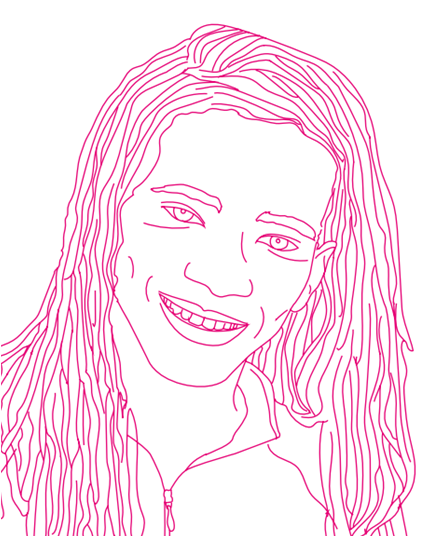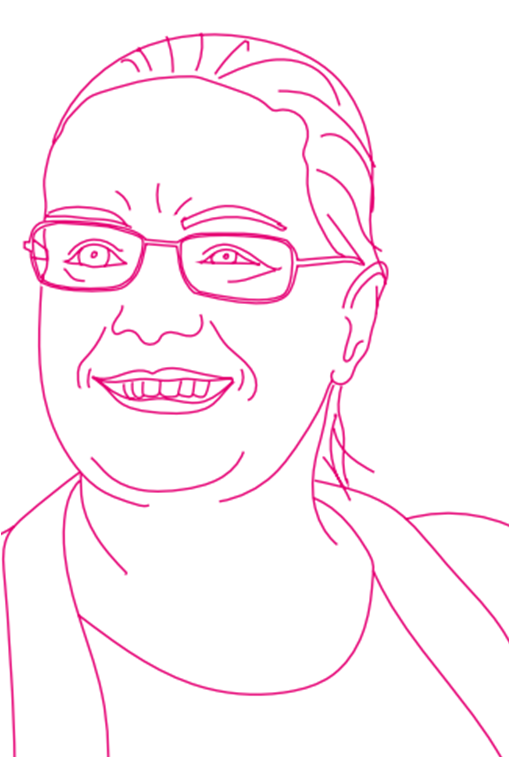In this latest Clinks Guest Blog Linda Bryant, Director of Criminal Justice Services at Together for Mental Wellbeing talks about mental health and wellbeing in the Criminal Justice System. Linda is a member of the Ministry of Justice's Reducing Reoffending Third Sector Advisory Board (RR3).
Too many people pass through the criminal justice system without their mental health and wellbeing needs being recognised.
With 70% of the prison population having some kind of mental health problem, but less than 1% of ex-offenders living in the community being referred for mental health treatment, our work to support vulnerable individuals is not yet done.
 In recent years we’ve made significant headway in terms of highlighting the need for criminal justice professionals, at every point of the justice pathway, to be equipped to identify vulnerable individuals at the earliest possible opportunity and direct them away from custody settings. The Bradley Report is just one notable example that highlights the need for the police and other criminal justice agencies, to be better supported to identify individuals with mental health needs and pass this information on as the person journeys through the criminal justice process.
In recent years we’ve made significant headway in terms of highlighting the need for criminal justice professionals, at every point of the justice pathway, to be equipped to identify vulnerable individuals at the earliest possible opportunity and direct them away from custody settings. The Bradley Report is just one notable example that highlights the need for the police and other criminal justice agencies, to be better supported to identify individuals with mental health needs and pass this information on as the person journeys through the criminal justice process.
Since the Bradley Report things have moved forward. In the past two years the Department of Health has invested in 26 specialist liaison and diversion schemes across the country, covering around 50% of the population. These schemes place mental health professionals in police stations and courts to ensure individuals get the support they need. For the first time, these services have been working to a national specification and the remit now includes children and young people as well as all vulnerabilities, such as learning disabilities, personality disorder and substance misuse. Operating hours are responsive to when people need support, so evenings and weekends are included. Services are also required to provide targeted support to particularly vulnerable service user groups, including ex-services personnel, women and black & minority ethnic communities.
This is all good news but that doesn’t mean that our work here is done.
The environment we are working in has become ever more challenging. ‘Super-sized’ police custody suites mean more cells and more people who need support at any one time. Meanwhile justice processes are speeding up in our courts. All of this means that professionals have less time to identify people’s needs, which means an increased risk of people slipping through the net.
That’s why specialist services, such as liaison and diversion, are so crucial. In London alone the schemes we run in partnership with NHS Trusts have supported over 3,500 people to get the support they need to break the cycle of offending. Police officers, magistrates, judges and, most importantly, those that use the services, time and time again tell us how much they value having someone on hand with the expertise to identify and address mental health and wellbeing needs.
“Since the mental health pilot programme has been introduced I have found it to be an invaluable resource, the amount of time that has been saved cannot be stressed both in terms of my role and that of the person being detained at the station with potential mental health issues. Previously it has been strenuous when dealing with social services or Community Mental Health Teams due to there not being a link between the organisations,” Police Custody Sergeant.
But, as of yet, specialist services don’t exist everywhere, and, even if they did, only by working in partnership and equipping professionals at all stages of the process to spot the signs and take action, will we ever be able to fill all the gaps.
 Police officers need to be supported to spot potential vulnerabilities before releasing people back into the community. A report in the hands of a magistrate that gives information about the person’s health and wellbeing needs might mean the difference between bail and custody, or a community order and a prison sentence. The impact of these decisions can, and do, make huge differences to people’s lives. It gives people caught up in offending the opportunity to get the right support at the right time, and therefore break the cycle.
Police officers need to be supported to spot potential vulnerabilities before releasing people back into the community. A report in the hands of a magistrate that gives information about the person’s health and wellbeing needs might mean the difference between bail and custody, or a community order and a prison sentence. The impact of these decisions can, and do, make huge differences to people’s lives. It gives people caught up in offending the opportunity to get the right support at the right time, and therefore break the cycle.
Take Tina. Tina was recently arrested and charged with assault. Tina* has bipolar affective disorder, but this is not picked up by criminal justice staff. She is remanded to attend court the next day. At court she is clearly distressed but no-one knows what to do. She is charged and bailed back into the community without any additional support.
At Together for Mental Wellbeing we see vulnerability as a starting point for recovery, growth and change. So, what if someone had identified Tina’s mental health issue?
In this time and money-poor system, we all must work together to ensure that mental health needs and other vulnerabilities, such as learning disability, are identified, regardless of the point at which someone enters the system.
In addition to providing specialist mental health teams in police and court settings, we created our first ‘common sense’ guide in 2010 to offer practical support to professionals whether we have a service there or not. We’ve distributed 3,000 print copies to professionals throughout the criminal justice system and nearly 3,000 copies have been downloaded free from our website. We’ve just published an updated version of our guide: A common sense approach to working with defendants and offenders with mental health and wellbeing needs, to reflect the changing environments in health, social care and criminal justice. It gives practical guidance on spotting potential issues, what to do in response and top tips on how to refer individuals to specialist community-based support services. By taking these steps we can support people to improve their wellbeing and tackle their offending.
If we can all learn to spot potential issues, we can change many more lives, just like Tina’s. In the second part of this blog, I will share with you the four easy steps we can all take to make this a reality and what actually happened for Tina that made all the difference.
In the meantime, click here to download the guide.
*Tina is a pseudonym
What's new
Blogs
Membership renewals 2026: what members need to know
Publications
Latest on X
The role is for a leader from an organisation focused on racially minoritised people, with expertise in service delivery, policy, advocacy, or related areas in criminal justice. Racial disparities are present at every CJS stage. This role ensures these voices are central in shaping policy to help address and eradicate them. Apply by Mon 18 Nov, 10am. More info: https://www.clinks.org/voluntary-community-sector/vacancies/15566 #CriminalJustice #RR3 #RacialEquity
